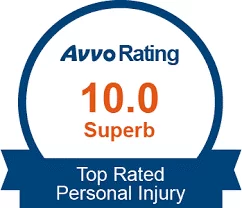Remembering Self-Care in the Crisis
We’ve been discussing aspects of what to do in the aftermath of a serious car crash, particularly one that involves injury to your child. We have more to discuss, but before doing so, let’s talk about you for a moment. By this point, you’ve covered the most pressing details, from getting medical attention for your child to documenting evidence and calling an attorney. Before going further, it’s time for a bit of self-care—seeing to your own mental, emotional, and physical well-being.
Why Self-Care Matters Now
Have you ever traveled by air and heard the safety spiel the flight attendants give at the beginning of the flight? When they get to the part about an unexpected drop in cabin pressure and the oxygen masks, have you ever wondered why they make a point of telling you to affix your oxygen mask first, before helping your child with hers? The answer: Without oxygen, you could faint, and then you’d be no help to your child at all. If you want to help your child, you must help yourself first.
The same principle applies in an injury accident situation. For most parents dealing with a crisis, the natural instinct is to be consumed with the child’s welfare, often to the point of neglecting their own. You need to overcome this impulse to ensure that you can continue being present for your child. Otherwise, you could burn out and be of no use to anyone—least of all your child.
You’ve Been Traumatized, Too
Remember—your child isn’t the only person having a crisis. You are in it, too, and that means you’ve been traumatized as well as your child—at least emotionally if not physically. The University of Notre Dame Counseling Center notes that traumatic events can cause “traumatic reactions,” which it defines as “normal reactions to extremely abnormal circumstances.” Anyone experiencing trauma may manifest a whole variety of emotional, psychological, and even physical symptoms, including:
- Nausea
- Fatigue
- Confusion or difficulty concentrating
- Hyperactivity
- Insomnia
- Anxiety (or conversely, numbness)
- Reliving the event
- …and a host of others.
These and other symptoms of trauma can affect your ability to stay present and alert during an ongoing crisis—which is why you must metaphorically take a moment to “put on your own mask.”
Self-Care in the Midst of Crisis
Taking time for yourself doesn’t require completely detaching from the situation—just give yourself space and permission to process what has happened. Some helpful tips:
- Get some rest. Easier said than done, but a good night’s sleep can work wonders to help you reset physically and mentally. Let someone else watch over your child and give yourself a chance to rest.
- Write it down. Journaling provides a way to process your thoughts, and you can include feelings as well as details you need to remember.
- Talk to someone you trust. In an article about self-care during times of stress, Northern Illinois University makes an important point: “Find someone who listens and is accepting. You don’t need advice. You need to be heard.” If you’re having trouble processing the pain or still feel the effects of trauma, don’t be afraid to seek help from a trained counselor.
Once you’ve afforded yourself some much-needed self-care, you will be better prepared for the challenges yet ahead. When you need a personal injury attorney, we are here to help. Call Greathouse Trial Law at (678) 310-2827.


